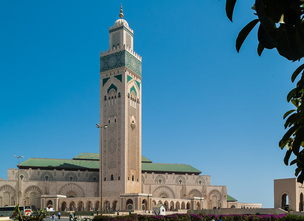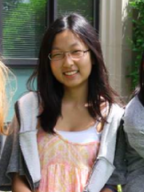Morocco

The Kingdom of Morocco is an absolute monarchy located in the north-westernmost corner of Africa. It has one of the strongest economies in the Maghreb, and, for centuries, had dominated the region. The current king, Mouhammad VI's, dynasty has been in power since 1666 AD. It was colonized both by the French and the Spanish, and once it was decolonized, the King of Morocco resumed absolute control over his nation, even annexing the former Spanish colony to the south. Due to this annexation, Morocco faces the potential for conflict both with the highly-active rebel groups in this southern region of the nation, and with their ally, the nation of Algeria, which borders Morocco to the east.
On top of this, Morocco faces many internal issues. Due to the consistently unfortunate situation in sub-Saharan Africa, many migrant workers from sub-Saharan nations, such as Senegal, Somalia, and Cameroon enter Morocco illegally, either in an effort to find work within Morocco or as a stepping stone to find work in Europe. Moroccan law has become stricter with regard to such illegal migrations and police have begun to enforce the law in this regard, but there are still tremendous difficulties with the system.
Also, native Moroccans, in response to the Arab Spring, began protesting the Alaoui regime's monarchical absolute control and demanded the “democratization” of the country in 2011. In response to his people's demands, his majesty, King Mouhammad VI, promised massive improvements to the nation's welfare policies, granting free food and electricity to many of the nation's underprivileged citizens. Alas, this policy has taken quite a toll on the national economy and has forced Morocco to end the free welfare programs as of early May of 2014. Additionally, the protests against King Mouhammad VI have provoked him to re-emphasize the Moroccan laws that limit the citizens' right to free speech; criticism of the King or his regime is not nearly as tolerated as it was prior to the Arab Spring. The King and his ministers must determine the correct balance of free speech and respect for the king.
As ministers of the King's cabinet, it is your job to solve all of these issues and any others that may surface as the simulation progresses.
Topics for BUAMUN 2015:
Meet the Staff
On top of this, Morocco faces many internal issues. Due to the consistently unfortunate situation in sub-Saharan Africa, many migrant workers from sub-Saharan nations, such as Senegal, Somalia, and Cameroon enter Morocco illegally, either in an effort to find work within Morocco or as a stepping stone to find work in Europe. Moroccan law has become stricter with regard to such illegal migrations and police have begun to enforce the law in this regard, but there are still tremendous difficulties with the system.
Also, native Moroccans, in response to the Arab Spring, began protesting the Alaoui regime's monarchical absolute control and demanded the “democratization” of the country in 2011. In response to his people's demands, his majesty, King Mouhammad VI, promised massive improvements to the nation's welfare policies, granting free food and electricity to many of the nation's underprivileged citizens. Alas, this policy has taken quite a toll on the national economy and has forced Morocco to end the free welfare programs as of early May of 2014. Additionally, the protests against King Mouhammad VI have provoked him to re-emphasize the Moroccan laws that limit the citizens' right to free speech; criticism of the King or his regime is not nearly as tolerated as it was prior to the Arab Spring. The King and his ministers must determine the correct balance of free speech and respect for the king.
As ministers of the King's cabinet, it is your job to solve all of these issues and any others that may surface as the simulation progresses.
Topics for BUAMUN 2015:
- Controlling anti-Moroccan sentiment and promoting Moroccan patriotism, within the nation's borders and also within the limits of King Mohammad's 'democratization' policy
- Asserting control over Western Sahara and further integrating it into the country
- Border disputes with Algeria and Mauritania
Meet the Staff

Madeleine Joung ('16), Chair ([email protected])
Madeleine Joung is a junior at BU Academy who has participated in Model UN in all her years of high school, attending conferences throughout New England. She was a JCC Chair last year as well and can't wait to be one again! With her experience from 2014, she's looking forward to helping to make her committee run even better than last year's. In addition to Model UN, she enjoys writing short stories, working on her violin and musical skills, playing tennis, and relaxing with her family and friends. She is so excited to see everyone at BUAMUN 2015!
Madeleine Joung is a junior at BU Academy who has participated in Model UN in all her years of high school, attending conferences throughout New England. She was a JCC Chair last year as well and can't wait to be one again! With her experience from 2014, she's looking forward to helping to make her committee run even better than last year's. In addition to Model UN, she enjoys writing short stories, working on her violin and musical skills, playing tennis, and relaxing with her family and friends. She is so excited to see everyone at BUAMUN 2015!

Amrita Sridhar ('17), Vice-Chair
Amrita is a sophomore at BU Academy. Last year she was a crisis staffer for the 1989 Communist China committee, and she is very much looking forward to being a part of BUAMUN again! In her free time, Amrita enjoys rock climbing, Southern Indian classical singing and dance, and watching Netflix-- especially Keeping up with the Kardashians.
Amrita is a sophomore at BU Academy. Last year she was a crisis staffer for the 1989 Communist China committee, and she is very much looking forward to being a part of BUAMUN again! In her free time, Amrita enjoys rock climbing, Southern Indian classical singing and dance, and watching Netflix-- especially Keeping up with the Kardashians.
| JCC: Morocco | |
| File Size: | 249 kb |
| File Type: | |
